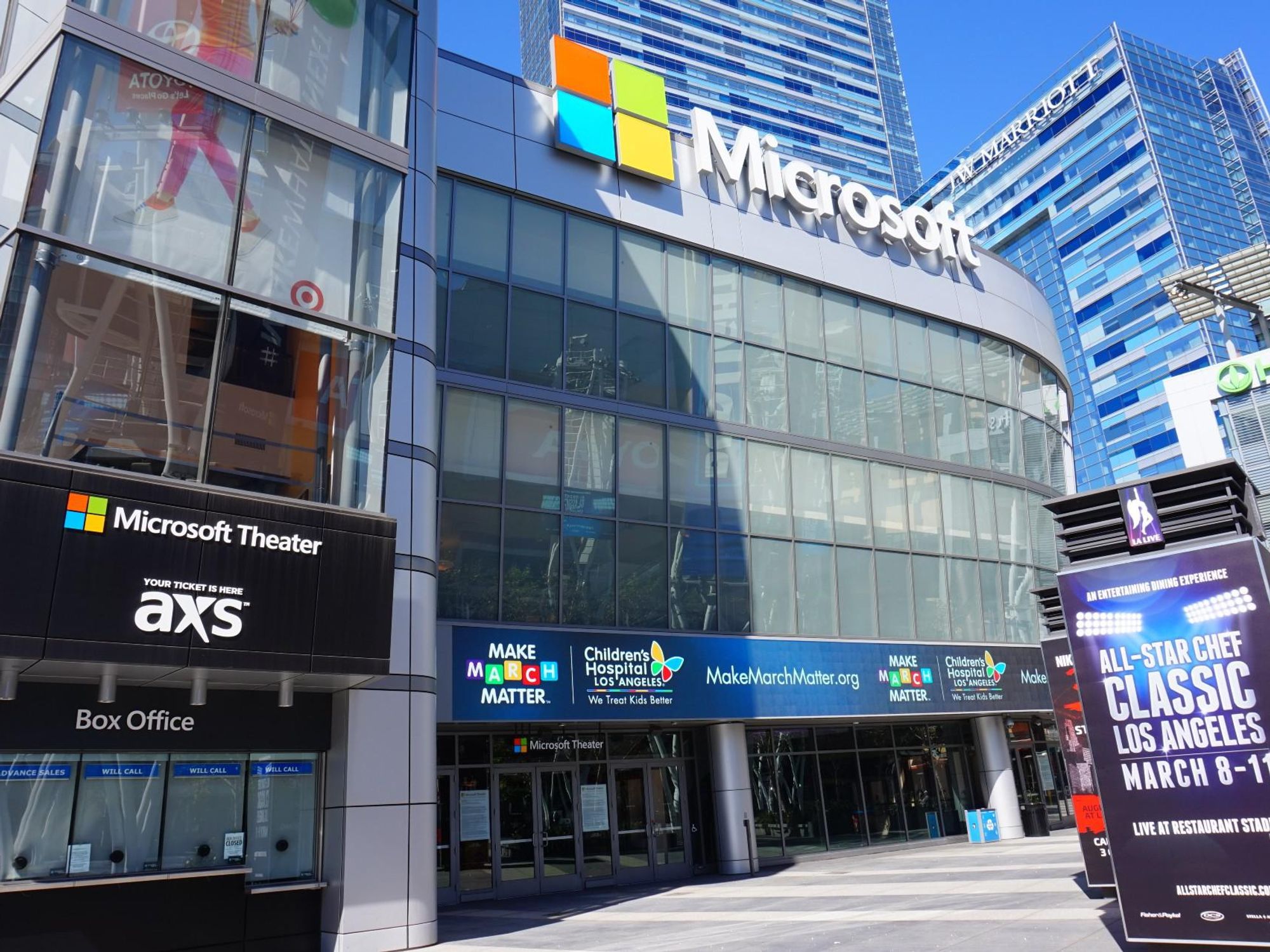Why Antitrust Concerns Won’t Block Microsoft’s Activision Acquisition
Samson Amore is a reporter for dot.LA. He holds a degree in journalism from Emerson College. Send tips or pitches to samsonamore@dot.la and find him on Twitter @Samsonamore.

Microsoft’s proposed $69 billion acquisition of Activision Blizzard is the video game industry’s biggest-ever deal—but while it will likely create a gaming giant by bringing the “Call of Duty” publisher under the Xbox behemoth’s umbrella, legal experts say there is little chance of the deal being called off due to antitrust violations.
The merger is still subject to approval by federal regulators at the Department of Justice and the Federal Trade Commission, a process which could take up to a year. Until then, Santa Monica-based Activision will continue to operate independently with embattled CEO Bobby Kotick at the helm.
If it is approved, the deal would make Microsoft the world’s third-largest gaming firm based on revenue, behind only Chinese tech conglomerate Tencent and longtime Japanese rival Sony. Still, on market share alone, it is unlikely that the combination would raise antitrust red flags; Microsoft’s share of the gaming industry market was just 6.5% in 2020, according to industry research firm Newzoo, which noted that the addition of Activision would lift that figure to only 10.7%.
Gordon Lang, a former DOJ attorney who now helms law firm Nixon Peabody’s antitrust practice, told dot.LA that the deal’s price tag is “an eye-opener and it's enough to get the agency's attention—but as a practical matter, a price tag by itself is not going to make a transaction that has no competitive issues unlawful.”
The acquisition arrives just as federal regulators have taken an increasing vocal stance toward prosecuting illegal mergers in the tech world. Yet despite the tougher approach, FTC chair Lina Khan—who has earned a reputation as a tough tech industry critic—has indicated that the agency will choose its caseload carefully.
“We have to make very difficult choices about which billion-dollar deals we're going to ensure we're closely investigating, but there are very real trade-offs in terms of what that work is going to come at the expense of,” Khan said last week. She added that regulators will focus their efforts on “instances in which [enforcement] could really change the dynamic in the entire market.”
Given that could bode well for Microsoft, which is no stranger to antitrust litigation. The Seattle giant weathered a historic DOJ antitrust lawsuit at the turn of the century, and since then has remained largely out of the trust-busting conversation.
If anything, Microsoft may argue that the Microsoft acquisition will actually increase gaming industry competition, by giving it more firepower to compete with the likes of Sony. “Microsoft would still only be the No. 3 gaming company” after the merger, Lang noted. “Typically in a situation like this, a merger proponent would say, ‘This isn't going to harm competition, because it's going to be able to make me stronger in competing against the top dogs.’”
For instance, while Microsoft’s Xbox Game Studios has mainly focused on publishing games for its namesake console as well as PCs, it doesn’t have a robust offering of mobile games—a rapidly growing segment of the industry in which Activision has found great success. The Santa Monica publisher’s King Digital Studios subsidiary develops the hugely popular “Candy Crush Saga” title, which raked in $36 million in revenue and clocked 2 million downloads in December 2021 alone, according to digital market analytics firm Sensor Tower. Activision’s “Call of Duty: Mobile” game also recorded 2 million downloads this past December, while generating $19 million in revenue.
Regulators could potentially pay special attention to other areas of the two companies’ gaming businesses, particularly consoles. While gamers can currently play top Activision titles like “Call of Duty'' and “Diablo” on Sony’s PlayStation consoles, Microsoft may look to move some of Activision’s hits to its burgeoning Xbox Game Pass subscription service—making them platform-exclusive, and out of reach to PlayStation gamers, in the process.
Yet Xbox boss Phil Spencer has already looked to downplay such concerns, tweeting last week that Microsoft plans to keep “Call of Duty” available on PlayStation. “Sony is an important part of our industry, and we value our relationship,” Spencer said.
Even as Activision and Microsoft consolidate, there is still room for other developers to expand in what remains a growing video game industry. Nixon Peabody attorney Irene Scholl-Tatevosyan, who leads the law firm’s esports and gaming practice, said she expects the buyout to prompt a flurry of future gaming mergers.
“There's a lot of big dogs within the industry competing with each other—but there's also mid-sized and smaller game studios that are also creating a lot of games, that compete and then eventually get bought out or grow bigger on their own,” Scholl-Tatevosyan told dot.LA. “I think there will be a lot of movement in this space where you see a lot of companies taking more and more [market] share of gaming.”
- It's the Start of a New Day in LA for Microsoft - dot.LA ›
- Microsoft Buying Activision Blizzard is a Mixed Bag - dot.LA ›
- Microsoft's $68.7 Billion Deal to Acquire Activision Blizzard Will ... ›
- Analysis: Microsoft's massive $68.7B acquisition of Activision ... ›
- Labor Union Urges SEC to Investigate Activision Over Filing - dot.LA ›
- Antitrust Regulators Review the Activision-Microsoft Merger - dot.LA ›
- Antitrust Regulators Review the Activision-Microsoft Merger - dot.LA ›
- Microsoft-Activision Merger Challenged by U.S. Senators - dot.LA ›
- Activision Reverses Vaccine Mandate Removal - dot.LA ›
- Activision Shareholders Approve Microsoft Merger - dot.LA ›
- FTC Moves to Block Activision-Blizzard's Microsoft Merger - dot.LA ›
- Microsoft-Activision Buyout Brings Unexpected Twist: Unions - dot.LA ›
Samson Amore is a reporter for dot.LA. He holds a degree in journalism from Emerson College. Send tips or pitches to samsonamore@dot.la and find him on Twitter @Samsonamore.





 Image Source: Skyryse
Image Source: Skyryse